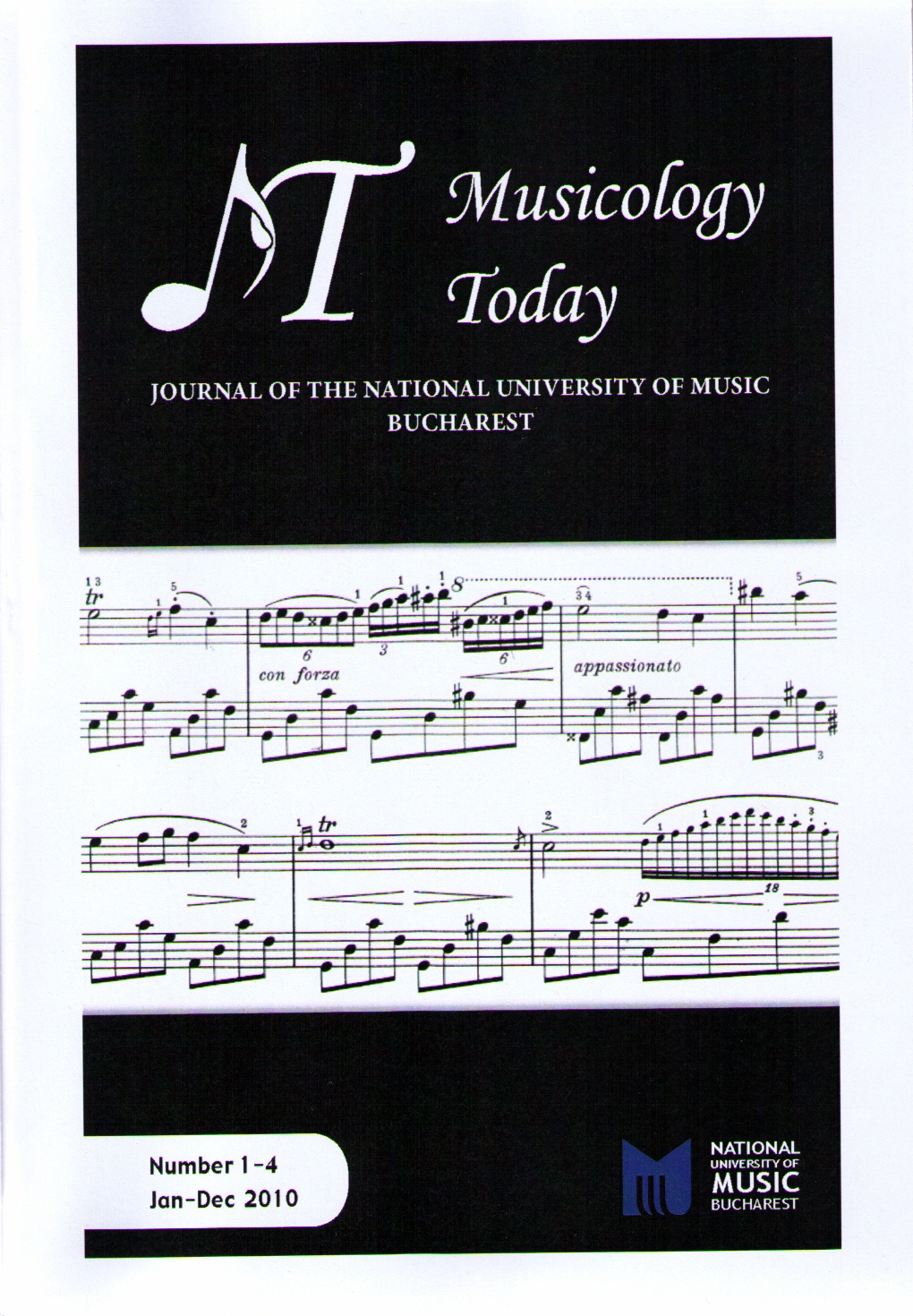Brăiloiu: innovations, acquis et prolongements
Brăiloiu: Innovations, Acquisition, and Extensions
Author(s): Jean-Jacques NattiezSubject(s): Music
Published by: Editura Universității Naționale de Muzică din București
Keywords: Brăiloiu; Jean-Jacques Nattiez’s study; modern musicological perspective;
Summary/Abstract: Jean-Jacques Nattiez’s study advances a modern musicological perspective on Brăiloiu’s ethnomusicological thought. The present critical approach of this theoretical corpus, more than five decades after Brăiloiu’s death, highlights, on the one hand, his predictive outlook („without him the essential perspectives of research in the ethnomusicology of the 21st century could not have been broached”). Thus, the author identifies the contribution of the Romanian ethnomusicologist „to establishing the study of peasants or non-Western music as a legitimate scientific subject-matter and to weakening of aesthetic racism”. Among the very creative points of the Brăiloiu’s theory are his advocacy for a “general musicology”, his demonstration with regard to “the possibilities and the necessities to bring to light the universals of music”, his technique of the synoptic table which represents an avant la lettre use of the “paradigmatic model” in musicology and so on. On the other hand, „a scientific paradigm as strong as that of Brăiloiu’s” has its own vulnerabilities, since it is “the porter of potentiality for developments that could not be imagined in the moment of its elaboration”. Also, Nattiez brings into discussion some concepts that have been refined or even challenged by the musicology of the last decades. For instance, the dichotomy learned art / traditional art seems “today too exact”. In connection with Brăiloiu’s “collective musical creation” concept, up-to-date ethnomusicology cannot accept, as he used to assert, that ”the more it progresses the less does research lead to a real history, to data or names, to an author”. Nattiez refers also to the dissemination of Brăiloiu’s works, almost ignored in the United States, but very appreciated by French and Italian ethnomusicologists, concerned with the systematic research: typologies of improvisation (Lortat-Jacob), vocal techniques (Léothaud), musical ensembles (Giuriati), organisation of musical time (Arom), scales and modes (Fernando), relationships between music and text (Giannattasio) and polyphonic techniques (Arom a.o.).
Journal: Musicology Today: Journal of the National University of Music Bucharest
- Issue Year: 1/2010
- Issue No: 3
- Page Range: 139-151
- Page Count: 13
- Language: French

